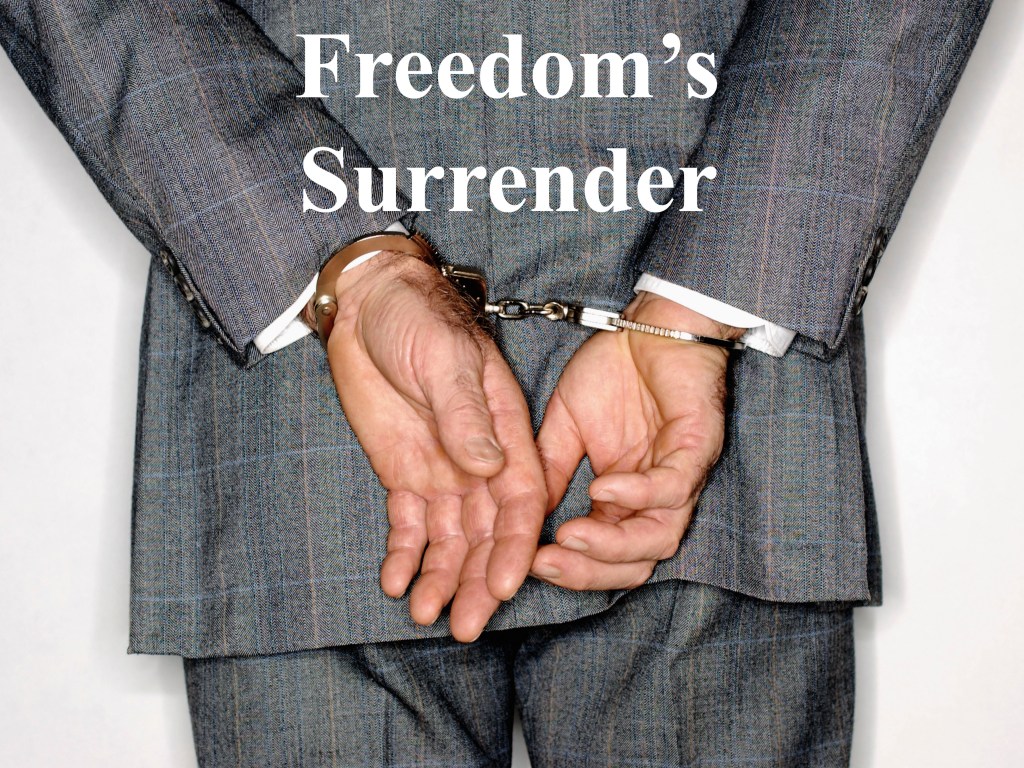
Isaiah 40:21-31 Mark 1:29-39 1 Corinthians 9:16-23
We’re going to start this morning with a quiz.
Most of you did not expect a quiz on Sunday morning, and some of you may struggle with the question, but here it is:
What idols do we worship in the United States in the twenty-first century?
Anyone who has been in church for any length of time at all, or anyone who has started reading the bible knows that there are many cautions and sermons against committing sin by worshipping idols.
Many of us would argue that our contemporary society doesn’t have any idols simply because you won’t find any temples where people worship Baal, or Jupiter, or Roma, or any of the ancient gods and goddesses. But is that enough of a defense?
It could easily be argued that idol worship is anything that we make so important in our lives that we are willing to sacrifice to it, and put ahead of God in priority, importance, or love. In scripture, God repeatedly makes the point that he simply will not accept second place. When we choose to worship God and his son Jesus Christ, God’s expectation, and God’s demand, is that we make him first in our lives. And if we use that definition, then it isn’t hard at all to see that Americans worship idols all the time. Even those of us who regularly go to church sometimes put God in second place because we are worshiping comfort, or sports, or money, or entertainment, or even the entertainment or indulgence of our children. As we discussed last week, as Americans, we often elevate rights above the importance that God gives to them and there are few other things that American culture elevates, and which may be regarded as idols, if we aren’t careful.
But first, let’s begin this morning by remembering who God is and why it is that we come here each Sunday to worship him. Let’s begin by listening to the words of the prophet Isaiah as he reminds God’s people of what God has done, why they belong to God, and why they really ought to stop complaining. We hear these words in Isaiah 40:21-31:
21 Do you not know?
Have you not heard?
Has it not been told you from the beginning?
Have you not understood since the earth was founded?
22 He sits enthroned above the circle of the earth,
and its people are like grasshoppers.
He stretches out the heavens like a canopy,
and spreads them out like a tent to live in.
23 He brings princes to naught
and reduces the rulers of this world to nothing.
24 No sooner are they planted,
no sooner are they sown,
no sooner do they take root in the ground,
than he blows on them and they wither,
and a whirlwind sweeps them away like chaff.
25 “To whom will you compare me?
Or who is my equal?” says the Holy One.
26 Lift up your eyes and look to the heavens:
Who created all these?
He who brings out the starry host one by one
and calls forth each of them by name.
Because of his great power and mighty strength,
not one of them is missing.
27 Why do you complain, Jacob?
Why do you say, Israel,
“My way is hidden from the Lord;
my cause is disregarded by my God”?
28 Do you not know?
Have you not heard?
The Lord is the everlasting God,
the Creator of the ends of the earth.
He will not grow tired or weary,
and his understanding no one can fathom.
29 He gives strength to the weary
and increases the power of the weak.
30 Even youths grow tired and weary,
and young men stumble and fall;
31 but those who hope in the Lord
will renew their strength.
They will soar on wings like eagles;
they will run and not grow weary,
they will walk and not be faint.
Isaiah begins by asking why you do not seem to understand the most obvious thing in the world, that God is not just big, but bigger than big. God is not just powerful, but so powerful that humans do not, and cannot, compare to him, nor can our imagination comprehend God’s power. Isaiah then continues by asking why people complain that God is hidden, or that God is ignoring them, or that God has forgotten them. Instead, Isaiah says, God knows exactly what you are doing, God is aware of your problems and cares about their resolution, but because God is all-powerful and all-knowing, God understands your situation better than you ever could. As such, God is not impatient, as we often are, and God waits for the right time to do what needs to be done. Once we understand and accept that this is true, then we also understand that our role is to trust God and as hard as it is to get past our own impatience, our role is to be patient and wait for God.
But then we read Mark 1:29-39. And here we find Jesus, God in human form, powerful beyond all understanding, and yet, what he does with that power staggers our imagination and our understanding. Mark says…
29 As soon as they left the synagogue, they went with James and John to the home of Simon and Andrew. 30 Simon’s mother-in-law was in bed with a fever, and they immediately told Jesus about her. 31 So he went to her, took her hand, and helped her up. The fever left her, and she began to wait on them.
32 That evening after sunset the people brought to Jesus all the sick and demon possessed. 33 The whole town gathered at the door, 34 and Jesus healed many who had various diseases. He also drove out many demons, but he would not let the demons speak because they knew who he was.
35 Very early in the morning, while it was still dark, Jesus got up, left the house, and went off to a solitary place, where he prayed. 36 Simon and his companions went to look for him, 37 and when they found him, they exclaimed: “Everyone is looking for you!”
38 Jesus replied, “Let us go somewhere else—to the nearby villages—so I can preach there also. That is why I have come.” 39 So he traveled throughout Galilee, preaching in their synagogues, and driving out demons.
In this short passage, we see Jesus heal Peter’s mother-in-law of an unspecified virus, heal the sick, and drive out demons. Jesus is, at this point, wildly popular and people flock to see him wherever he goes. He is incredibly powerful. He could, at this point, do anything that he wanted to do. He could make a fortune just by performing healings. Can you imagine what Herod or other powerful people would have paid to be healed of their gout, diabetes, heart failure, lead poisoning,meningitis, encephalitis, syphilis, and other unknown and misunderstood diseases from which they suffered? Can you imagine what it would have been worth to Ceasar to know who was trying to kill him? Jesus could have done whatever he wanted. He could have been rich, he could have travelled, he could have had earthly power, but instead he tells his disciples that they will walk to nearby villages so that he can preach, teach, heal, and drive out demons because, he says, “that is why I have come.”
Jesus had the power and the freedom to do whatever he wanted to do, but he chose to do what God had sent him to do. And that feeds into what Paul says in his letter to the church in Corinth. Paul wasn’t powerful like Jesus, but he clearly had other options of what he could do with his life. Paul explains his choices this way in 1 Corinthians 9:16-23:
16 For when I preach the gospel, I cannot boast, since I am compelled to preach. Woe to me if I do not preach the gospel! 17 If I preach voluntarily, I have a reward; if not voluntarily, I am simply discharging the trust committed to me. 18 What then is my reward? Just this: that in preaching the gospel I may offer it free of charge, and so not make full use of my rights as a preacher of the gospel.
19 Though I am free and belong to no one, I have made myself a slave to everyone, to win as many as possible. 20 To the Jews I became like a Jew, to win the Jews. To those under the law I became like one under the law (though I myself am not under the law), so as to win those under the law. 21 To those not having the law I became like one not having the law (though I am not free from God’s law but am under Christ’s law), so as to win those not having the law. 22 To the weak I became weak, to win the weak. I have become all things to all people so that by all possible means I might save some. 23 I do all this for the sake of the gospel, that I may share in its blessings.
Paul says that he doesn’t travel from town to town and preach the gospel because of some inflated sense of self-importance but because that is why God has called him, and what God compels him daily to go out and do. Like Jesus, and like generations of pastors, teachers, and evangelists that have followed him, Paul doesn’t preach so that he can gain wealth, or fame, or some other earthly reward, but simply because he is being obedient to God.
Paul says that he is free to do whatever he wants to do. As a Roman citizen, and as a person from a family that had some measure of wealth, Paul is free to go wherever he wants to go, and do whatever he wants to do. Until he chose to follow Jesus, Paul was recognized as a leader within the Pharisees and among the rulers and leaders of Israel and, if it were power and notoriety that he wanted, it is likely that he could have gone back to that life. Paul had the freedom to do whatever he wanted to do, but instead, he gave up his freedom to be obedient to God. He gave up his comfort to suffer alongside the slaves and the poor. He gave up the familiarity of his Jewishness so that he could minister to, and with, the Gentiles. Although Paul had freedom, he gave up that freedom whenever, and wherever necessary so that he could accomplish the mission given to him by Jesus Christ.
Just as we spoke last week about rights, we must be careful as the followers of Jesus Christ and as citizens of the United States in the twenty-first century, to not make an idol of our freedoms. As important, and as wonderful, as freedom is, if we are to answer the call that God has upon our lives, we must sometimes set our freedoms aside in order to accomplish the mission that God has assigned to us.
Our rights and freedoms are not idols to be worshiped, they are tools to be used, set aside, or even surrendered, in pursuit of rescuing the lost as we share the story and the gospel of Jesus.
Please LIKE and SHARE!
Click here to subscribe to Pastor John’s blog.
Click here if you would like to subscribe to Pastor John’s weekly messages.
Click here to visit Pastor John’s YouTube channel.
*You have been reading a message presented at Christ United Methodist Church on the date noted at the top of the first page. Rev. John Partridge is the pastor at Christ UMC in Alliance, Ohio. Duplication of this message is a part of our Media ministry, if you have received a blessing in this way, we would love to hear from you. Letters and donations in support of the Media ministry or any of our other projects may be sent to Christ United Methodist Church, 470 East Broadway Street, Alliance, Ohio 44601. These messages are available to any interested persons regardless of membership. You may subscribe to these messages, in print or electronic formats, by writing to the address noted, or by contacting us at secretary@CUMCAlliance.org. These messages can also be found online at https://pastorpartridge.com . All Scripture quotations, unless otherwise indicated, are taken from the Holy Bible, New International Version®, NIV®. Copyright ©1973, 1978, 1984, 2011 by Biblica, Inc.™ Used by permission of Zondervan. All rights reserved worldwide. www.zondervan.comThe “NIV” and “New International Version” are trademarks registered in the United States Patent and Trademark Office by Biblica, Inc.™




